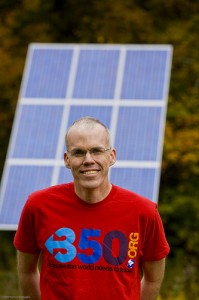 An exchange with Paul Kingsnorth, founder of the Dark Mountain Project
An exchange with Paul Kingsnorth, founder of the Dark Mountain Project
Research now demonstrates that the continued functioning of the Earth system as it has supported the well-being of human civilization in recent centuries is at risk. Without urgent action, we could face threats to water, food, biodiversity and other critical resources: these threats risk intensifying economic, ecological and social crises, creating the potential for a humanitarian emergency on a global scale.
– “State of the Planet Declaration,” London, March 29, 2012
That’s the warning issued last week by a high-level group of scientists, business leaders and government officials at the Planet Under Pressure conference in London. As The New York Times Green blog reported, “The conference brought together nearly 3,000 people to discuss the prospects for better management of the earth and to build momentum for the United Nations Conference on Sustainable Development, known as Rio+20, to be held June 20-22 in Rio de Janeiro.” (The Times’ Andy Revkin offers a good wrapup at his Dot Earth blog.)
Earlier last week, at the start of the conference, visitors to the website were greeted with this short video, “Welcome to the Anthropocene,” charting “the growth of humanity into a global force on an equivalent scale to major geological processes” (the idea that the planet has passed from the Holocene into an “Age of Man” has, of course, gained wide acceptance):
It’s certainly an arresting video. And many might see in those images a call to action, however belated.
Not Paul Kingsnorth. An English writer and erstwhile green activist, he spent two decades (he’ll turn 40 this year) in the environmental movement, and he’s done with all that. He’s moved beyond it. If anything, his message today is too radical for modern environmentalism. He’s had it with “sustainability.” He’s not out to “save the planet.” He’s looked into the abyss of planetary collapse, and — unlike, say, imprisoned climate activist Tim DeChristopher, who might be seen as Kingsnorth’s radical American opposite — he seems to welcome what he sees there. Continue reading

 An interview with the 350.org founder, Keystone resister, Occupy supporter, Jesus follower (and, yes, Thoreau scholar)
An interview with the 350.org founder, Keystone resister, Occupy supporter, Jesus follower (and, yes, Thoreau scholar)